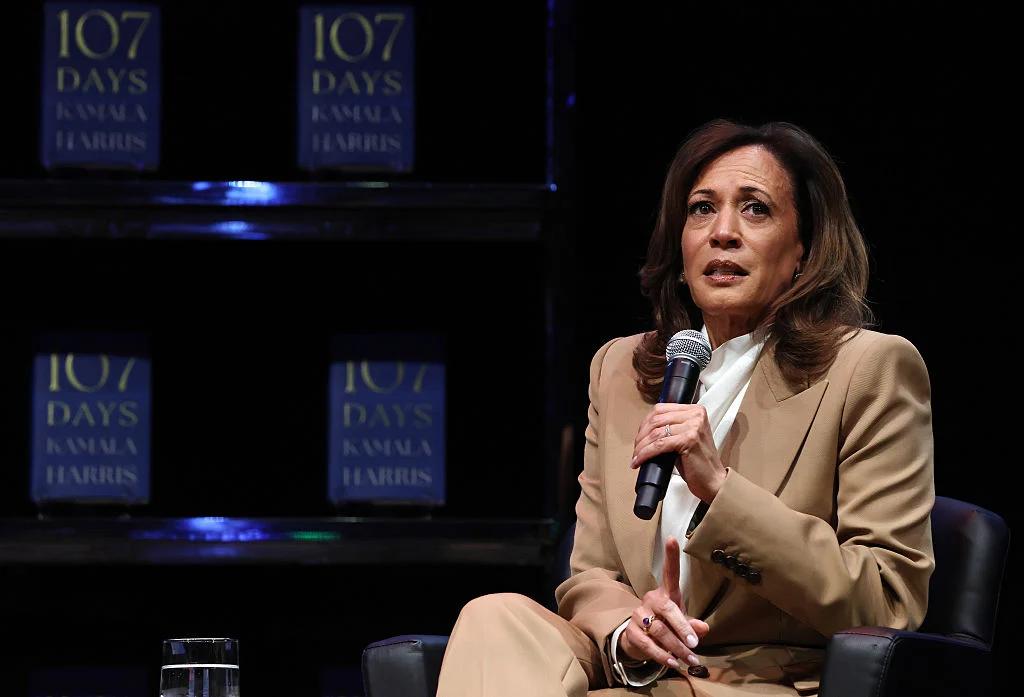Kamala Harris’ Book Tour Encounter with Protestors: A Heated Chicago Stop
On Saturday, former Vice President Kamala Harris found herself at the center of controversy during her latest book tour stop in Chicago, promoting her memoir, “107 Days.” This title reflects the brief period she had to campaign as the Democratic nominee for the 2024 presidential election after former President Joe Biden’s withdrawal from the race. However, what was meant to be a celebratory event quickly turned into a platform for protest as pro-Palestinian demonstrators voiced their concerns over Harris’ and the Biden administration’s stance on the ongoing conflict in Gaza.
Tensions Rise with Protests
As Harris engaged in a discussion with journalist Michele Norris, protestors interrupted repeatedly, challenging the former vice president’s loyalty to allies in Gaza. They criticized her for perceived complicity in the U.S. government’s support of Israel amid the escalating war. According to reports from NBC Chicago, the situation escalated to the point where security had to intervene, escorting a vocal protestor out of the venue. Another attendee was also removed as chants of “get her out” echoed through the theater.
In one particularly notable moment captured on video, Harris addressed the protestors after the fifth interruption of the evening. She responded with a pointed question: “Are you the same person that was telling people not to vote?” This exchange highlighted the complexity of Harris’ position, as she navigated the critical discourse surrounding voter engagement while facing accusations of neglecting pressing humanitarian concerns.
A Missed Opportunity for Direct Discussion
Interestingly, Harris did not directly address the Israel-Palestine conflict during her responses to the protestors. Instead, she focused on voter engagement, referring to the “uncommitted” ballots cast in Michigan during the Democratic primary—a rallying point for many disillusioned progressives who felt the Biden administration had not adequately addressed the Gaza crisis. This phenomenon was mirrored in other states, such as Minnesota and Maryland, where voters expressed their dissatisfaction with Democratic politics through similar means, choosing to abstain from supporting any candidate rather than endorse those who failed to align with their humanitarian values.
Harris took a moment to emphasize the importance of understanding why approximately one-third of eligible voters abstained from casting their ballots in the last election. “We need to do some deep thinking about that,” she remarked, alluding to the potential disconnect between policymakers and their constituents.
Deflecting to Broader Issues
When confronted with protests advocating for immediate action on Gaza, Harris repeatedly pointed to her lack of presidential authority, stating that actions taken by the current administration were beyond her control. “So here’s the thing, I am not president,” she reiterated, seeking to shift the conversation away from her personal responsibilities and towards broader political narratives, including references to past administrations’ legacies. She invoked the “legacy of mass deportations” and highlighted the stark differences between her party’s values and those of former President Trump.
During similar encounters in New York and Washington, D.C., Harris’s responses followed a trend of acknowledging the protestors’ concerns while simultaneously deflecting the blame to the presidential office. “I understand your concerns, and how you feel,” she expressed in New York, noting that the current situation in the region was a consequence of decisions made at the highest level of government.
A Growing Tension in Public Discourse
Harris’ book tour ultimately reflects a growing tension within the Democratic Party, where issues surrounding foreign policy and humanitarian crises increasingly prompt civil unrest among constituents. With the pro-Palestinian movement gaining momentum, public figures like Harris find themselves at a challenging crossroads, attempting to balance their political responsibilities while also addressing the urgent concerns of activists and voters alike.
In Chicago, as in previous stops, the confrontations serve as a microcosm of a larger national conversation about accountability, foreign policy, and the demands of an increasingly vocal electorate. Proponents of humanitarian advocacy continue to call for greater accountability from their leaders, pushing them to take firmer stances on issues that matter deeply to their communities.



